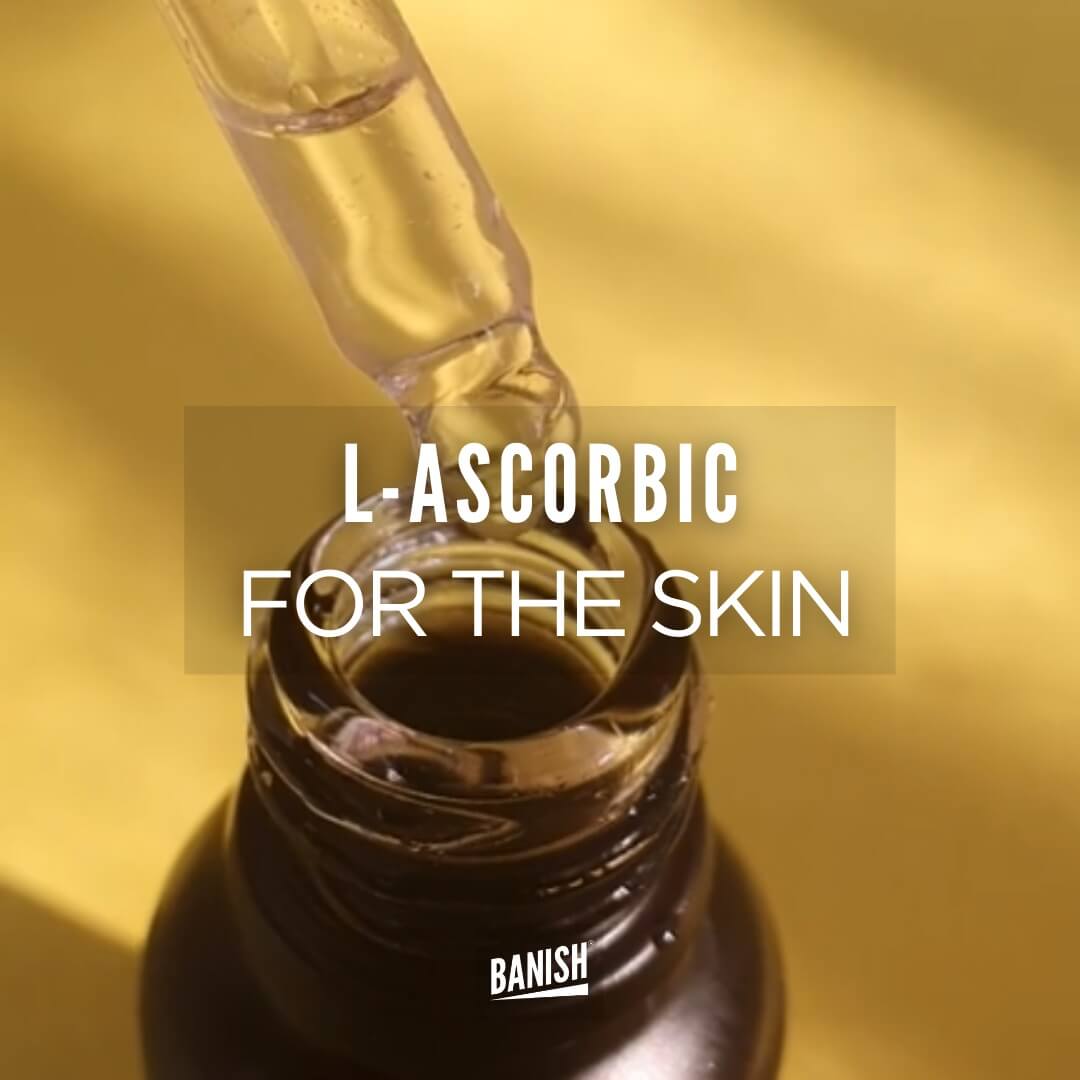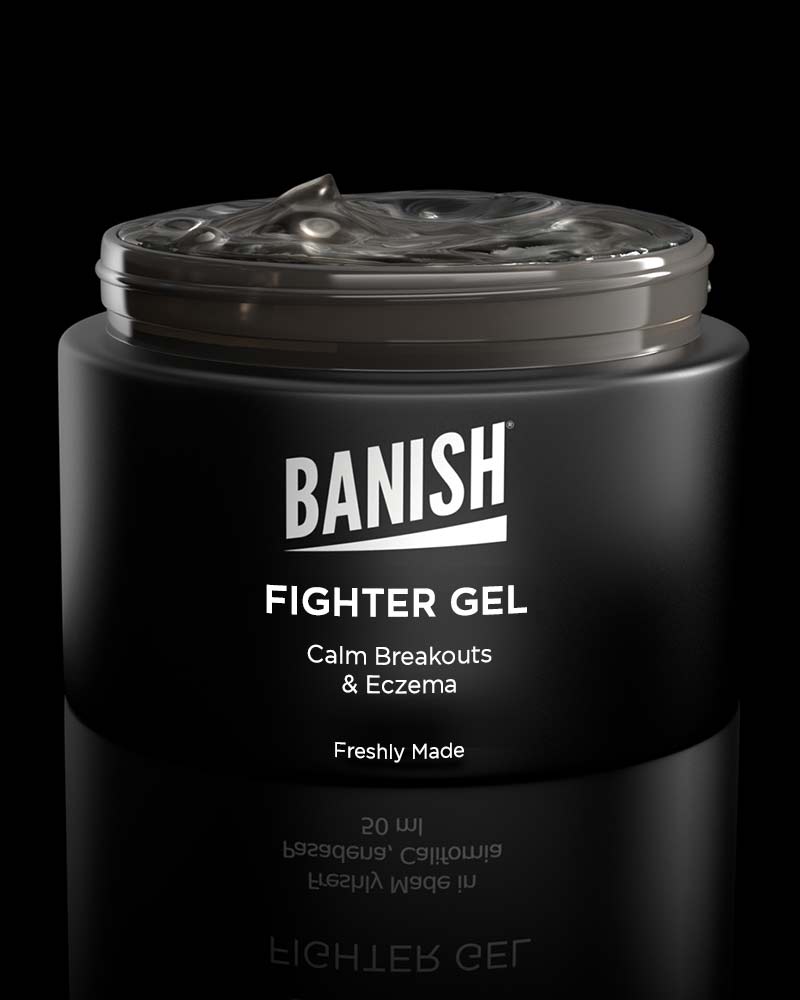Have you been seeing vitamin c as an ingredient and staple in pretty much every skincare routine? Do you ever wonder why this is so? Did you also have the same thought as I had before - What does Vitamin C do for skin and do I really need it?
The short answer is yes - but there are different types of vitamin c and we'll focus on the kind that has had the most studies done on it which is called L-Ascorbic Acid or ascorbic acid.
Vitamin C is not just there to strengthen our immune system, It also helps us our skin a lot! We'll dive into what Vitamin C ( L-ascorbic acid ) does for our skin and what skin benefits it provides.
WHAT IS L-ASCORBIC ACID?
L-ascorbic acid is also known as the pure form of Vitamin C.
Vitamin C in the form of l-ascorbic acid is known to be one of the most research proven ingredients you can apply to your skin with few side effects. It is a water-soluble antioxidant and a natural component of healthy skin. L-ascorbic acid is the most biologically active form of vitamin c which makes it the most beneficial and easily absorbed.
This acid is often found in topical skincare products and usually found in a concentration between 3- 20%.
It can usually be found in fruits and vegetables such as oranges, broccoli, leafy greens, grapefruit and peppers. They are also known to be a great source of dietary Vitamin C.
WHAT DOES L-ASCORBIC ACID DO FOR THE SKIN?
Here are numerous skin benefits of L-ascorbic acid:
- Reduces wrinkles
- Protects collagen and increases its production
- Aids wound healing
- Helps protect against sun damage
- Reduces hyperpigmentation
- Evens out skin tone
- Brightens skin complexion
- Acts as an armor against pollution
Promotes Collagen In Skin
Products containing L-ascorbic acid aid in collagen synthesis.
Collagen is the foundation of our skin, so the increased collagen can improve skin firmness and may help with acne scars, and fine lines and sagging skin due to loss of collagen.
Fades Dark Spots
Vitamin C also inhibits excess melanin production to protect against dark marks or hyperpigmentation. Vitamin C can also reverse some skin damage and works best when used with sunscreen.
This acid also prevents an enzyme called tyrosinase or tyrosine from being converted to melanin , and this enzyme is responsible for blocking hyperpigmentation.
Antioxidant properties
Vitamin C assists with protecting the skin from free radical damage which leads to aging skin.
Extra protection against UV rays
Vitamin C can enhance sun protection by reducing the damage from UV rays when applied before sunscreen.
How does L Ascorbic acid compare to other forms of vitamin c?
While there are other types of vitamin c, l-ascorbic acid is a type of vitamin c that is the purest, has the most effective and proven skin benefits, and is in the most bio available for your skin to absorb.
The downside of l-ascorbic acid is that it is highly unstable so the shelf life of it is shorter once exposed to air, light, or water. It may also be irritating to some people with very sensitive skin.
|
L-Ascorbic Acid |
Vitamin C Derivatives | |
|---|---|---|
| Effectiveness | Most potent, direct form of Vitamin C | Less potent, must be converted into L-Ascorbic Acid by the skin |
| Clinical Evidence | Backed by decades of research for brightening, collagen stimulation, and antioxidant protection | Less clinical support |
| Speed of Results | Fast results (typically within 1-3 months) | Slower results depending on form and skin enzymes |
| Bioavailability | 100%. Absorbed and used by skin immediately | Variable absorption and conversion rates |
| Ideal For | People seeking fast, visible results and research-backed performance | Sensitive skin types |
What are the other types of Vitamin C Derivatives?
You may notice skincare products that say they contain vitamin c, but the ingredient name could be different. There are several other forms of vitamin c that need to be converted by our skin to a usable form. We'll list the common types below.
Sodium Ascorbyl Phosphate
This vitamin c derivative is good for antioxidant benefits and some brightening and it has some antibacterial properties which might help people with bacterial acne.
Magnesium Ascorbyl Phosphate
This form of vitamin c is water soluble and good for hydrating and brightening and has collagen stimulating properties although it is less effective than L ascorbic acid, but more gentle
Tetrahexyldecyl Ascorbate
This helps with supporting collagen in the skin, preventing and brightening dark spots, and anti aging properties. This type of vitamin c is oil soluble which makes it easier for skin to absorb so it can penetrate deep into the skin. Can be used for sensitive skin and has high efficacy even in low concentrations.
HOW IS L-ASCORBIC ACID USED?
Here are some tips provided by experts on using Vitamin C serums with L-ascorbic acid:
- Use Vitamin C serums in the morning with sunscreen
- Use the right concentration of Vitamin C for your skin type - higher may do more harm if your skin is sensitive.
- Be cautious of layering Vitamin C with other high irritating ingredients such as retinol in the same routine
- Store your Vitamin C products away from heat and light.
- If the formulation is combined with Vitamin E or Ferulic Acid, it can increase effectiveness of the Vitamin C.
- Pay attention to the product’s color. When L ascorbic acid is oxidized, and turns yellow or orange, it loses efficacy.

CHOOSING THE BEST VITAMIN C SERUMS
We are often guilty of joining the bandwagon or going with the flow when it comes to purchasing Vitamin C Serums without checking product labels and ingredients list.
What do we usually look for when choosing Vitamin C Serums? To get the most out of your vitamin c serum that contains L-ascorbic acid make sure it has:
- PH level between 3
- Is clear
- Is free of added fragrance
- Is contained in dark packaging or has airless delivery
It's recommended to patch test first as well to see if it would work well for your skin or not or if the overall formulation is suitable for your skin type.
Because of all the multiple benefits L-ascorbic acid has in skincare, a vitamin c serum is pretty essential in your skincare routine if you're dealing with acne scars or hyperpigmentation and is tolerable for most people. .
Products With L Ascorbic Acid

The Banish Serum contains L-Ascorbic acid with vitamin E and ferulic acid to help keep it stable.
References:
Vitamin C in Dermatology: https://www.ncbi.nlm.nih.gov/pmc/articles/PMC3673383/
Topical Activity of Ascorbic Acid: From in vitro Optimization to in vivo Efficacy https://www.karger.com/Article/Abstract/78824


























Leave a comment
All comments are moderated before being published.
This site is protected by hCaptcha and the hCaptcha Privacy Policy and Terms of Service apply.